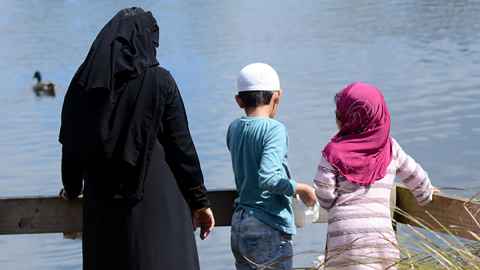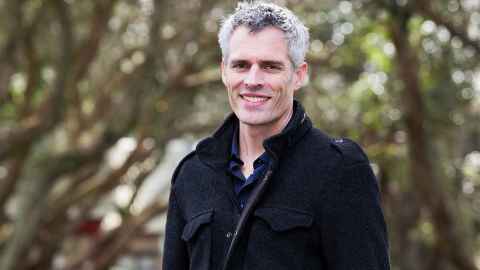First five years crucial for refugee success: new study
2 June 2023
The first five years are vital for successful refugee settlement in Aotearoa, but some groups are falling behind, according to a new study from the University of Auckland.

The economic situation of 24,894 people from refugee backgrounds who came to New Zealand between 1997 and 2020 is the focus of the first paper in an ongoing study from the Centre for Asia Pacific Refugee Studies (CAPRS) at the University of Auckland.
The study asked three broad questions: What are refugee access rates to education and state housing, who remains on benefits, as opposed to in employment over time and what factors contribute to income over time?
Findings reveal the importance of the first five years in terms of successful economic outcomes, or otherwise, and reveal disparities in income and job status between four sub-groups: quota refugees, who are not faring quite as well, convention refugees, asylum seekers and those who arrive under the family reunification scheme to join others family members.
Quota refugees, of whom New Zealand accepts 1500 per year, already have refugee status (due to a well-founded fear of persecution) before they arrive and go through an initial five-week settlement programme in Auckland; after which they’re automatically New Zealand residents and offered a range of health, education, employment and accommodation support lasting up to two years.
The fact that the data reveals this group has the greatest need of support makes sense, as they are often the most vulnerable people in their home countries and include the sub-categories of ‘women at risk’ and ‘medical/disabled’, says study lead, Professor Jay Marlowe.
“This means the government doesn’t ‘cherry pick’ those who are most likely to contribute to the economy, which makes it a humanitarian programme worth celebrating.”

For quota refugees, settlement support has been historically provided in the first year (and now, in theory two). There is a case, looking at this data, for extending this to five years, where marked improvements in terms of income and the percentages of people moving into paid employment happen, says Marlowe.
“That’s where you see the greatest shifts in people going from the benefit to wages and salaries or self-employment, and that’s the case across all groups. But after five years, positive trends start to level off.”
And although these findings indicate a need for more assistance for quota groups, the team is not suggesting that the Refugee Resettlement Strategy should be limited to quota refugees, as it is currently, he says.
“It’s clear that all groups follow a similar trend of making positive strides, from different initial starting points, and this is most pronounced in the first five years; extending support to all refugee groups could result in quicker and better employment outcomes, even if that would involve higher short-term funding costs, it would be better economically in the long run.”
The age you are when you arrive, the amount of time you’ve been settled, and your gender (women tend to fare worse) are important considerations in terms of job prospects and any policy solutions need to take this into account, he says.
For many people, what constitutes successful settlement is their children succeeding, rather than themselves.
The data sourced for the study is from the Integrated Data Infrastructure (IDI), a massive administrative data set composed of billions of facts about New Zealand individuals and households which draws from sources like government ministries, the IRD and the Census, takes all this data and effectively links it in whatever way it’s asked.
Administered by Statistics New Zealand as a secure database, IDI can look at things like education, employment, mental health, marital status, housing, housing and mobility; a wide range of information which is carefully guarded and can only be accessed by permission in secure labs.
The IDI takes different identifiers, aside from names – things like NHI, passport or visa numbers – and links them to the requested data and draws it all together into a ‘spine’, providing a unique identifier or code for each individual which is “scrubbed” of anything that would reveal them, says Marlowe.
“After doing the analysis you have to then send it back to Stats NZ for them to check it doesn't violate any confidentiality protocols.”
He says his colleague and affiliated CAPRS scholar, Dr Arezeoo Malihi, spent three years identifying this population, analysing the data, and working with advisory committees made up of immigration and legal experts in the sector to make sure the team was interpreting it accurately.
He believes it’s important to emphasise that this study, across 23 years, is missing the second and third generation cohort and therefore “doesn’t tell the whole story”.
“There’s a quote by Afghan Abbas Nazari, who wrote a book about his time as a refugee after being rescued by the Tampa, where he says something like, ‘The first generation builds the foundation to the house, the second builds the house, and the third fills the house’.
“For many people, what constitutes successful settlement is their children succeeding, rather than themselves.”
And the number of students from refugee backgrounds, even at the University of Auckland, far surpasses what we would expect relative to the general population, he notes.
“They are our future workforce, they're committed; they’re supporting their families and community, but also the wider society.”
The open access paper Settlement trajectories of nearly 25,000 forced migrants in New Zealand: longitudinal insights from administrative data by Jay Marlowe, Arezoo Zarintaj Malihi, Barry Milne, Jessica McLay and Annie Chiang has been published in Kotuitui: New Zealand Journal of Social Sciences Online.